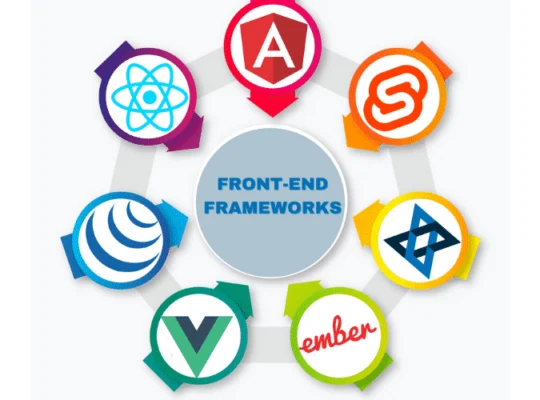Schema Markup Guide for 2025: Boost Your SEO with Structured Data
Schema Markup (also known as structured data) is one of the most impactful yet underutilized SEO strategies available today. In 2025, as search engines continue to evolve toward semantic understanding, structured data has become a core part of how Google, Bing, and other engines interpret website content.
 By adding schema markup to your website, you’re not just helping search engines understand your content—you’re giving them explicit signals to show rich results, featured snippets, and even trigger Knowledge Graph panels. These enhancements dramatically improve visibility, click-through rates (CTR), and overall trustworthiness in search engine results pages (SERPs).
By adding schema markup to your website, you’re not just helping search engines understand your content—you’re giving them explicit signals to show rich results, featured snippets, and even trigger Knowledge Graph panels. These enhancements dramatically improve visibility, click-through rates (CTR), and overall trustworthiness in search engine results pages (SERPs).
Why Schema Markup is More Important Than Ever
- Improves Click-Through Rate (CTR) via enhanced listings (stars, FAQs, images).
- Boosts content visibility in Google Discover, News, and voice search.
- Helps Google understand the context of your content (entities, relationships, etc.).
- Supports AI-powered search by feeding structured insights to Large Language Models (LLMs).
- Future-proofs your content as Google and Bing continue shifting to structured-based AI systems.
In fact, Google’s John Mueller confirmed that structured data is being tested as a possible ranking factor in select scenarios. So, ignoring schema markup means giving up a competitive edge you might not be able to regain later.
“Structured data helps us understand the page better.”
— John Mueller, Senior Webmaster Trends Analyst at Google
What Schema Markup Enables in SERPs
By implementing the correct markup, your pages may qualify for:
- Rich Snippets: Ratings, product details, prices, images
- Featured Snippets: Paragraph, list, table or video-based snippets
- Sitelinks Search Box: For branded queries
- Knowledge Panel Integration: If you’re an authority
- Google News & Discover Features: Especially for blogs and media content

Real SEO Benefits from Schema Markup
Let’s say your e-commerce website sells fitness watches. Without structured data, Google only sees plain text. With schema, you can specify:
- Product name
- Brand
- Price and currency
- Rating and review count
- Availability (in stock, preorder)
This transforms your boring plain-text result into a feature-rich listing that stands out—driving better engagement and higher CTR.
Where Should You Use Schema Markup?
Schema markup isn’t limited to blogs or product pages. In fact, Google encourages its use across nearly every type of website. Whether you manage a small business, run a blog, sell digital products, or operate a SaaS platform — schema markup helps structure your content for better interpretation.
🔍 Common Places to Use Schema:
- Homepage: Organization and WebSite schema
- Product pages: Product, Offer, and Review schema
- Blog posts or news: Article or NewsArticle schema
- About pages: Person or Organization schema
- Video pages: VideoObject schema
- FAQ or Help sections: FAQPage or QAPage schema
- Event listings: Event schema
- Courses or Software: Course or SoftwareApplication schema
What Schema Formats Are Supported in 2025?

Google officially supports three formats for structured data, but only one is recommended:
- JSON-LD (Recommended): Script-based structured data placed in the head or body of the HTML. Easiest to manage and least invasive to your site’s design.
- Microdata: Inline structured data written directly into your HTML tags. Still supported but harder to maintain.
- RDFa: Deprecated in modern practice. Avoid unless absolutely necessary.
For maintainability, flexibility, and future compatibility, always use JSON-LD unless you’re using a CMS or plugin that forces Microdata (like some versions of WooCommerce).
Where Should You Add Schema in Your Website?
- Head tag: Ideal place for most JSON-LD blocks.
- Before closing
</body>tag: Also acceptable for JSON-LD blocks. - On every relevant page: Each page should have schema relevant to its content.
For example, your product pages should have Product + Offer schema. Your blog posts should use Article schema. Your homepage should have Organization and WebSite schema.
“Use JSON-LD wherever possible. We recommend this format because it does not interfere with the visual structure of the page.”
— Google Search Central, Structured Data Guidelines
Frequently Used JSON-LD Schema Examples
Below are tested and Google-recommended examples of structured data in JSON-LD format. Copy and paste them into your page’s <head> section or before </body>.
1. Organization Schema
<script type="application/ld+json">
{
"@context": "https://schema.org",
"@type": "Organization",
"name": "Acesoftech Academy",
"url": "https://acesoftech.com",
"logo": "https://acesoftech.com/logo.png",
"contactPoint": {
"@type": "ContactPoint",
"telephone": "+91-8583959528",
"contactType": "Customer Support"
},
"sameAs": [
"https://www.facebook.com/acesoftech",
"https://www.linkedin.com/company/acesoftech"
]
}
</script>
2. WebSite Schema
<script type="application/ld+json">
{
"@context": "https://schema.org",
"@type": "WebSite",
"name": "Acesoftech Academy",
"url": "https://acesoftech.com",
"potentialAction": {
"@type": "SearchAction",
"target": "https://acesoftech.com/?s={search_term}",
"query-input": "required name=search_term"
}
}
</script>
3. Product + Review Schema
<script type="application/ld+json">
{
"@context": "https://schema.org/",
"@type": "Product",
"name": "Codos CP-9600 Pet Trimmer",
"image": "https://example.com/image.jpg",
"description": "Quiet motor, ergonomic grip, long-lasting battery.",
"brand": {
"@type": "Brand",
"name": "Codos"
},
"review": {
"@type": "Review",
"reviewRating": {
"@type": "Rating",
"ratingValue": "4.8",
"bestRating": "5"
},
"author": {
"@type": "Person",
"name": "Ravi Sharma"
}
},
"aggregateRating": {
"@type": "AggregateRating",
"ratingValue": "4.7",
"reviewCount": "328"
},
"offers": {
"@type": "Offer",
"priceCurrency": "INR",
"price": "2899.00",
"availability": "https://schema.org/InStock"
}
}
</script>
4. Blog Article / NewsArticle Schema
<script type="application/ld+json">
{
"@context": "https://schema.org",
"@type": "NewsArticle",
"headline": "Schema Markup Guide for 2025",
"image": [
"https://acesoftech.com/uploads/schema-seo.jpg"
],
"datePublished": "2025-05-14",
"dateModified": "2025-05-14",
"author": [{
"@type": "Person",
"name": "Siddharth Chaudhary"
}],
"publisher": {
"@type": "Organization",
"name": "Acesoftech Academy",
"logo": {
"@type": "ImageObject",
"url": "https://acesoftech.com/logo.png"
}
}
}
</script>
5. LocalBusiness Schema
<script type="application/ld+json">
{
"@context": "https://schema.org",
"@type": "LocalBusiness",
"name": "Acesoftech Academy",
"image": "https://acesoftech.com/logo.png",
"address": {
"@type": "PostalAddress",
"streetAddress": "Salt Lake Sector 5",
"addressLocality": "Kolkata",
"addressRegion": "West Bengal",
"postalCode": "700091",
"addressCountry": "IN"
},
"telephone": "+91-8583959528",
"openingHours": "Mo-Fr 10:00-18:00"
}
</script>
6. VideoObject Schema
<script type="application/ld+json">
{
"@context": "https://schema.org",
"@type": "VideoObject",
"name": "How to Use Schema Markup",
"description": "Learn how to apply structured data to your website.",
"thumbnailUrl": "https://example.com/thumbnail.jpg",
"uploadDate": "2025-05-14",
"contentUrl": "https://example.com/videos/schema-tutorial.mp4",
"embedUrl": "https://www.youtube.com/embed/your-video-id"
}
</script>
7. Event Schema
<script type="application/ld+json">
{
"@context": "https://schema.org",
"@type": "Event",
"name": "Live SEO Training Webinar",
"startDate": "2025-06-01T19:00",
"endDate": "2025-06-01T21:00",
"eventAttendanceMode": "https://schema.org/OnlineEventAttendanceMode",
"eventStatus": "https://schema.org/EventScheduled",
"location": {
"@type": "VirtualLocation",
"url": "https://acesoftech.com/webinar"
},
"organizer": {
"@type": "Organization",
"name": "Acesoftech Academy",
"url": "https://acesoftech.com"
}
}
</script>
Best Practices for Using Schema Markup in 2025
Schema is powerful—but only if implemented correctly. Follow these best practices to maximize SEO benefits while staying compliant with Google’s structured data guidelines.
- ✅ Use JSON-LD: Always use JSON-LD format, as recommended by Google.
- ✅ Add Relevant Schema: Match schema types to page content (e.g. Product schema only on product pages).
- ✅ Use Google’s Rich Results Tool: Always test your schema using Rich Results Test.
- ✅ Update Dynamically: Keep values (like rating, price, availability) in sync with real-time data.
- ✅ Use Specific Types: Always use the most specific schema.org type available (e.g.,
NewsArticleoverArticle). - ✅ Provide Image URLs: Ensure image URLs used in schema are crawlable and load properly.
🚦 Do’s and Don’ts of Structured Data
✅ Do’s
- Use structured data only for content visible to users.
- Mark up all instances if multiple products or events are on a page.
- Ensure every schema tag uses valid and up-to-date vocabulary from Schema.org.
🚫 Don’ts
- Don’t fake reviews or ratings in your structured data.
- Don’t use schema markup that misrepresents page content.
- Don’t mark up hidden elements—Google can penalize deceptive markup.
- Don’t forget to test your schema regularly—errors may disable rich results.
🛠 Tools to Test and Monitor Your Schema
📌 Final Summary
Structured data is no longer optional—it’s a vital SEO weapon in 2025. Whether you’re a blogger, an e-commerce store, or a software business, schema markup will help you stand out in search results, improve click-throughs, and boost credibility with search engines.
From Product and Review schema to Event and VideoObject, there’s a structured format for almost every kind of content. Implementing it correctly not only improves discoverability but also aligns your website with how Google thinks and ranks pages today.
🚀 Need Help with Schema Markup?
Connect with Acesoftech Academy — India’s leading web development training institute. We provide hands-on training in advanced SEO, structured data, and modern web technologies.
📞 Call: +91 8583959528






